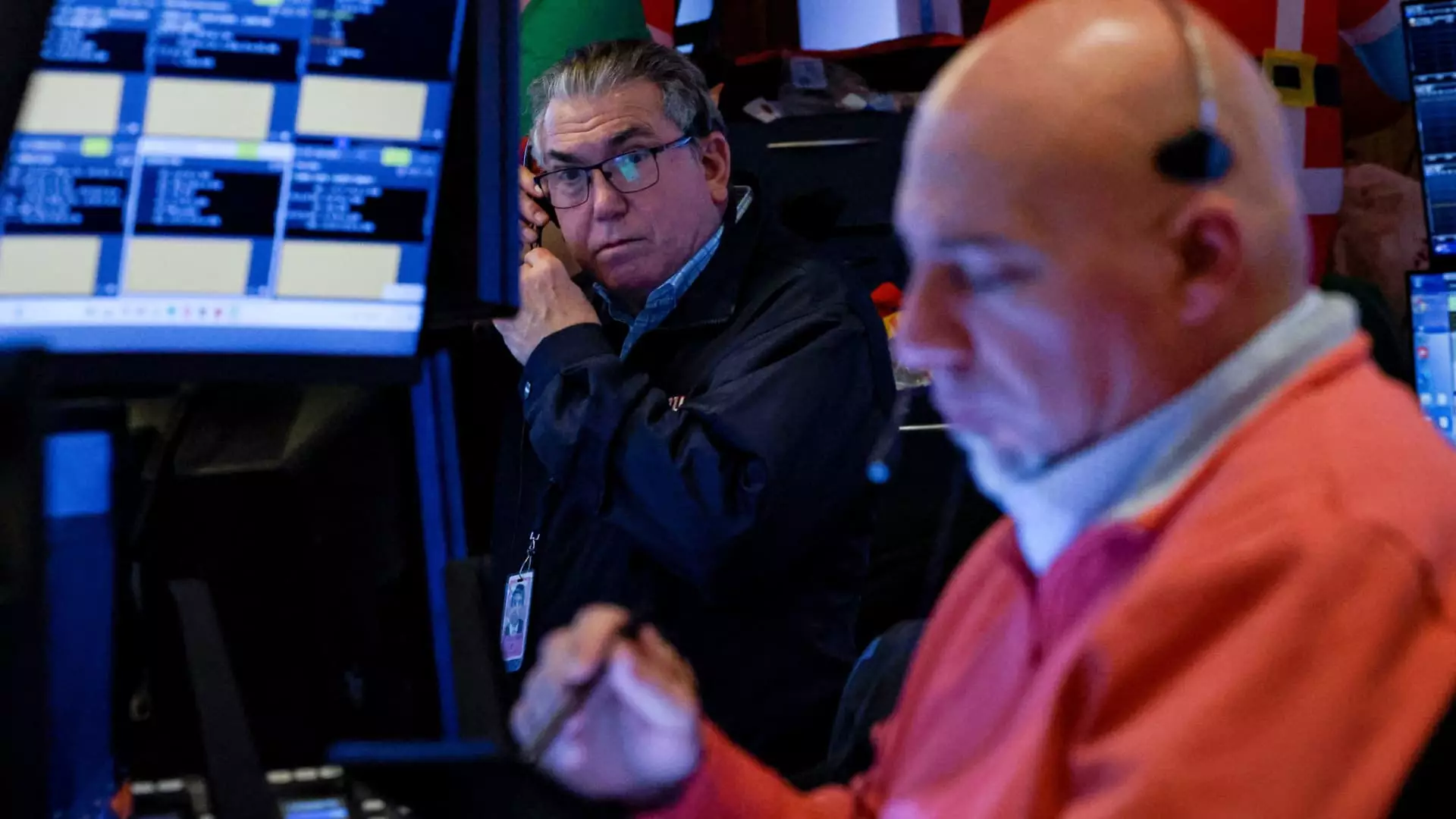European stock markets are encountering anticipated declines on Tuesday as they approach a week heavy with central bank scrutiny. According to IG data, the U.K.’s FTSE 100 index is projected to drop by 18 points to 8,240. Similarly, Germany’s DAX is expected to decrease by 22 points, settling at 20,291, while France’s CAC anticipates a dip of 12 points, reaching 7,342. The Italian FTSE MIB is forecasted to see a more significant decline of 129 points, amounting to 34,618. This downturn reflects anxiety permeating through markets as traders shift their focus towards imminent policy decisions from major global central banks.
At the heart of the market’s concern this week is the U.S. Federal Reserve, which convenes for a crucial two-day policy meeting starting today. The outcome of this meeting, culminating in the central bank’s monetary policy announcement on December 18, will be closely monitored by investors worldwide. Current projections indicate a robust 95% likelihood of the Fed implementing a quarter-point interest rate cut—a potentially significant maneuver in a period characterized by heightened volatility across financial markets. Observers are particularly keen on insights from Chair Jerome Powell during the press conference that will follow the meeting. His comments are expected to shed light on the Fed’s future policy trajectory amidst shifting economic conditions.
Following the Fed, the Bank of England (BoE) will convene on Thursday, though market sentiment currently reflects only a minimal probability of rate adjustments during this meeting. Investors remain cautious as they navigate through uncertain economic indicators while keeping a close watch on inflationary pressures and growth forecasts that could shape the BoE’s actions. The outcome of these deliberations will be vital for the British economy, especially in the context of lingering post-Brexit adjustments.
In the political arena, German Chancellor Olaf Scholz faced a confidence challenge in the German parliament, resulting in a lost vote on Monday. This development sets the stage for a potential snap election on February 23, a decision that comes in the wake of a fractured coalition government. Scholz strategically aimed for this vote loss to initiate fresh elections, highlighting the ongoing political turbulence that could affect economic policy and governance in Germany.
Overnight, Asia-Pacific markets exhibited mixed performance as trading sentiment fluctuated in anticipation of the central bank decisions ahead. In the U.S., stock futures slightly declined overnight, suggesting that investors are bracing themselves for a potential shift in market dynamics as the week unfolds. Essential economic data slated for release on Tuesday includes U.K. unemployment figures and Germany’s Ifo business climate and economic sentiment index, both critical indicators that will influence investor sentiment and expectations moving forward.
European markets are poised for a challenging start, burdened by uncertainties tied to central bank deliberations and evolving political landscapes. The coming days will be pivotal for traders as they seek clarity in monetary policies that could reshape financial landscapes globally.


Leave a Reply